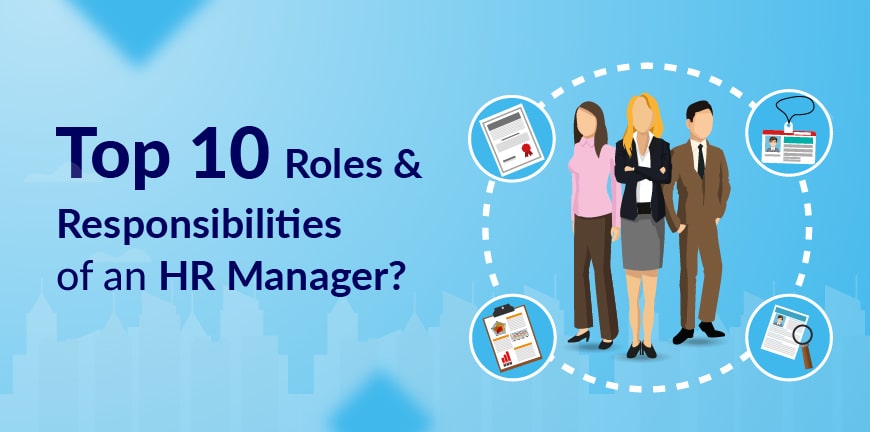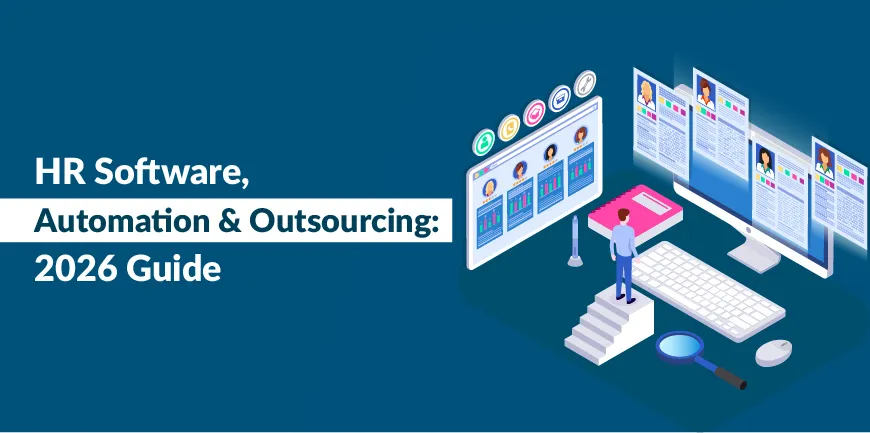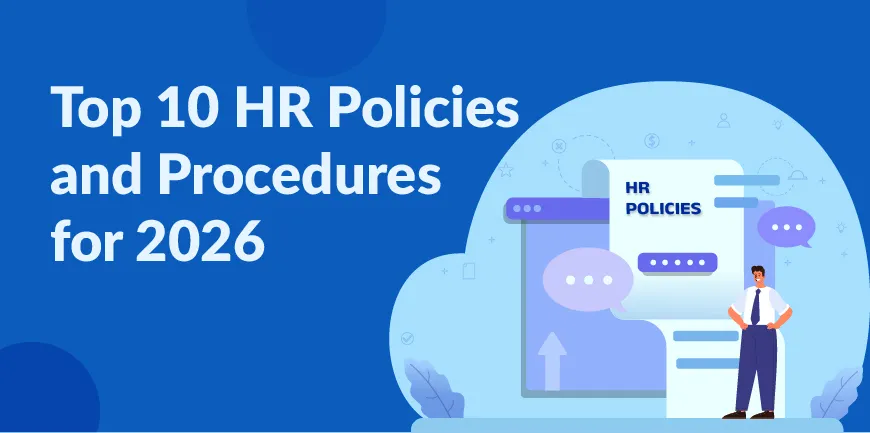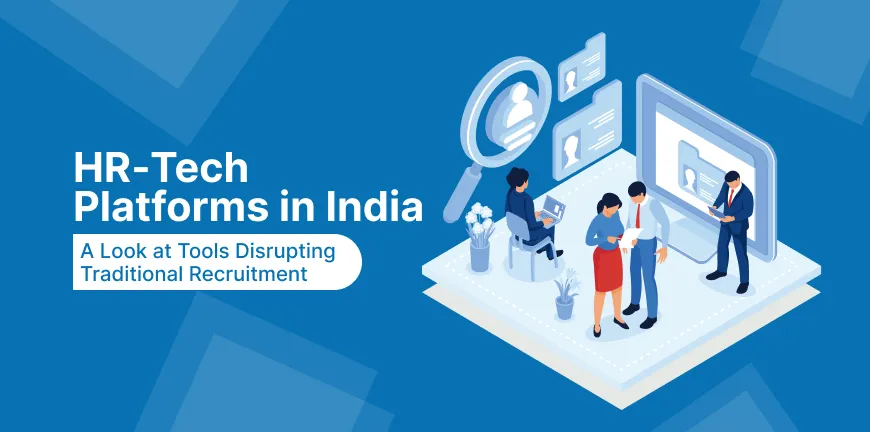
How Japanese Language Training Boosts IT Hiring in Japanese Firms?
18/06/2025
How to Switch Careers Without Starting Over?
26/06/2025Introduction
In a dynamic era with a fast-evolving job market and a people-centric business landscape, there must be an entity that strings it all together. An HR manager is the person you can rely on. These individuals are professionals whose roles have also altered drastically with the changing times, and they are no longer confined to handling mere paperwork and recruitment; they are partners in making calculative organizational decisions, like crafting culture and building teams.
They are the engine manoeuvring companies through transformations. From pioneering talent acquisition to resolving differences of opinion, cultivating employee engagement to powering leadership building, an HR manager is multifaceted, ensuring a thriving organization.
What is HR Manager and What do they do?
HR (human resources) manager is a professional who primarily manage the hiring procedure of an organization. The procedure includes training, development, handling salaries, perks, the emotional and physical health of employees, along maintaining a positive workspace.
What are the 10 Key Roles and Responsibilities of an HR Manager?
The key responsibilities of an HR manager are critical in framing the future of any business. Let us check out some of the vital responsibilities of HR managers:
1. Recruitment of Candidates
An HR manager plays an integral part in the entire hiring procedure of employees from start to finish. Their job is not limited to administrative tasks but involves being a strategic partner of organizations while acquiring top-tier candidates required to build a robust company.
They collaborate with company leadership to understand the objectives of the company, comprehend their culture, and decipher their overall workforce requirements before looking for suitable candidates. They play an intrinsic part in creating and integrating policies that cater to laws and regulations, ensuring they are implemented effectively.
2. Crafting Powerful Job Descriptions
Job description creation is a crucial facet of the hiring process. It involves highlighting job roles and scope diligently, which entails details on what qualifications are required, what level of performance to expect, and responsibilities needed to qualify for a particular position.
This way, a company communicates a clear message through a well-structured blueprint that caters to the company’s vision, mission, and culture, in synergy with the appropriate candidates. A clear picture can draw promising and skilled candidates who will be attuned to the organization’s work culture and values from the get-go.
3. Designing Impactful Onboarding, Training Modules
Well-created, comprehensive onboarding programs and development initiatives are critical to any HR management team, as these modules and sessions facilitate the beginning of nurturing dedicated and engaged teams.
The procedure is not mere orientation anymore; it introduces new employees to the work traditions, values, functions, and expectations, making them feel like a part of the organization from the inception.
To top it, the training programs are crafted in such a manner that they gear up employees and embed the required knowledge and tools they need to excel in their respective roles. The process boosts the morale of employees, ensuring a better transition that will give long-lasting positive results.
4. Effective Talent Management Methods
One of the core responsibilities of a human resources manager is implementing and executing talent management techniques that fuel the growth of a company. This entails recognizing promising talent from a vast talent pool and picking out the ones who can be future leaders and can excel in critical roles, creating development paths that adhere to individual and business objectives.
The path can be filled with various mentorship sessions, leadership training modules, and exposing new workers to functions across disciplines in the organization. Another significant aspect of talent management practices is to incorporate a comprehensive succession plan, which readies businesses for any future leadership transitions by activating and grooming a strong internal talent pool.
5. Employee Retention Technique Development
Another strategic role of an HR Manager is to outline processes that accelerate employee commitment and satisfaction. A confident and driven team is productive and more loyal and can be innovative and determined to collaborate on all levels. The responsibility can be fulfilled by implementing a well-formulated data-centric approach to deduce the true cause of engagement propelling the organization.
This is where robust employment retention practices come into play, facilitating a positive work landscape where transparent communication is encouraged and where employees’ work is acknowledged and appreciated, and where professional development is supported.
To get positive results, an array of elements is required, including daily employee surveys and organizing exit interviews to acquire powerful insights into the trends that lead to performance graphs and areas requiring scope for improvement.
6. Management of Salary and Perks
HR managers HR Managers must focus on motivating and retaining current employees. To initiate the process, the foremost step is to incorporate pay packages that are competitive and meet industry standards.
Today, where the job market is a rat race, salary and perks are pivotal factors enabling candidates to make important decisions, and a factor influencing well well-being of an employee, and allegiance towards a company.
To ensure this, HR professionals must be updated with the latest market scenario, trends, industry benchmarks, and changing employee aspirations. The process involves salary surveys, assessing reports, and evaluating methods implemented by competitors. This offers an understanding of what is required to provide fair and attractive compensation.
7. Maintaining a Healthy Employee Relationship
HR managers are professionals who handle and drive positive employee connections within the company. The practice entails understanding the various issues an employee faces, resolving upheavals in the work environment, and actively nurturing a positive, inclusive, and forward-thinking workspace where professionals feel valued, supported, and resilient.
It is not just about resolving and combating challenges but transforming the overall rapport between employees and the organization. Clear and transparent means of communication are built, along with unbiased workplace policies, ensuring that employees are aware of their rights and responsibilities.
8. Performance Management of Employees
An HR manager must actively ensure the betterment of employees, which also includes handling how they perform. They are the ones who would craft, implement, and monitor a sturdy performance evaluation system that accurately and unbiasedly measures the contribution of an employee, their progress report, and scope of improvement.
The procedure is all about setting clear performance objectives and expectations, facilitated through elaborate discussions between employees and HR managers.
A transparent framework is drafted considering if the goals are achievable, measurable, and precise. A significant part of this process is the feedback method. HR managers ensure that there is constant and constructive feedback through various channels and by using effective tools, empowering employees to understand where they stand.
9. Establishing A Perfect Work Culture
It is an HR manager’s role to create and maintain an ideal work culture that nurtures within the organization. To get the best results, they need to formulate a process that boosts a positive work environment. They must introduce a slew of rewards and recognition programs, fostering a culture that respects diversity and inclusion and values unadulterated communication.
An environment so welcoming that employees can thrive and give their best to the company and also enhance their professional and personal growth. They must consistently evaluate the culture and upgrade as per the company’s requirements and vision.
10. Ensuring Adherence to Laws and Rules
Every HR Manager needs to be cautious when it comes to ensuring that an organization complies with laws, regulatory policies, and industry norms applicable to them. To create a sustainable, ethical work landscape, compliance becomes a critical area that is required to be taken care of effortlessly.
HR Managers must be well-versed with the updated information on labour laws, health and safety regulations, salary rules, anti-discrimination laws, etc, at the local, national, and global levels. This will safeguard a company from risking its image, ethical disputes, penalties, etc.
Apart from legal compliances, HR managers can also implement internal policies and codes of conduct to maintain a conflict-free work environment.
A revolution is driving today’s workforce towards greater heights. Progressive HR professionals and managers are at the helm of the transformation. These professionals not only have the expertise in hiring but can also quickly upgrade themselves with the changing trends and technologies.
They are the underdogs, empowering teams and businesses to flourish while they create a solid foundation for innovative human resources approaches with their superior insight and talent.
Frequently Asked Questions (FAQs)
1. What is the most important role of an HR manager?
The most significant role of an HR manager is to identify the right talent that caters to the goals and values of a particular company, ensuring they are compliant with laws, rules, and standards.
2. What are the daily tasks of an HR manager?
HR managers have an array of daily jobs to handle, including onboarding, performance management, employee relations, and many more.
3. How does an HR manager contribute to company success?
A company benefits immensely from HR managers as they manage the entire work cycle efficiently and are also responsible for creating a productive and positive work environment.
4. What is the difference between an HR generalist and an HR manager?
The HR generalist takes care of the daily operational activities of talent acquisition, while HR managers monitor and manage the overall procedures.
5. What HR metrics should managers track?
Key HR metrics like employee engagement, turnover rates, productivity, and recruitment success, etc are assessed by HR managers.
6. How can HR managers improve employee retention?
HR managers enhance employee retention by nurturing a positive work landscape, offering substantial benefits and salary, promoting work-life balance, etc.
7. What challenges do HR managers face today?
There are several challenges managers face regularly, like managing compliance issues, adapting to technology, nurturing a positive work culture, etc.
Contact Us For Business Enquiry

Rajkumar Shanmugam
Rajkumar Shanmugam is the Head of HR at ALP Consulting, bringing over 19 years of comprehensive HR leadership experience across India and international markets. His expertise spans talent acquisition, employee relations, performance management, compliance, and HR transformation. Rajkumar has a proven track record of driving people-centric initiatives, enhancing workplace culture, and aligning HR strategy with business goals. With extensive experience in US staffing operations and global mobility, he continues to lead organizational excellence through innovation and employee engagement.




